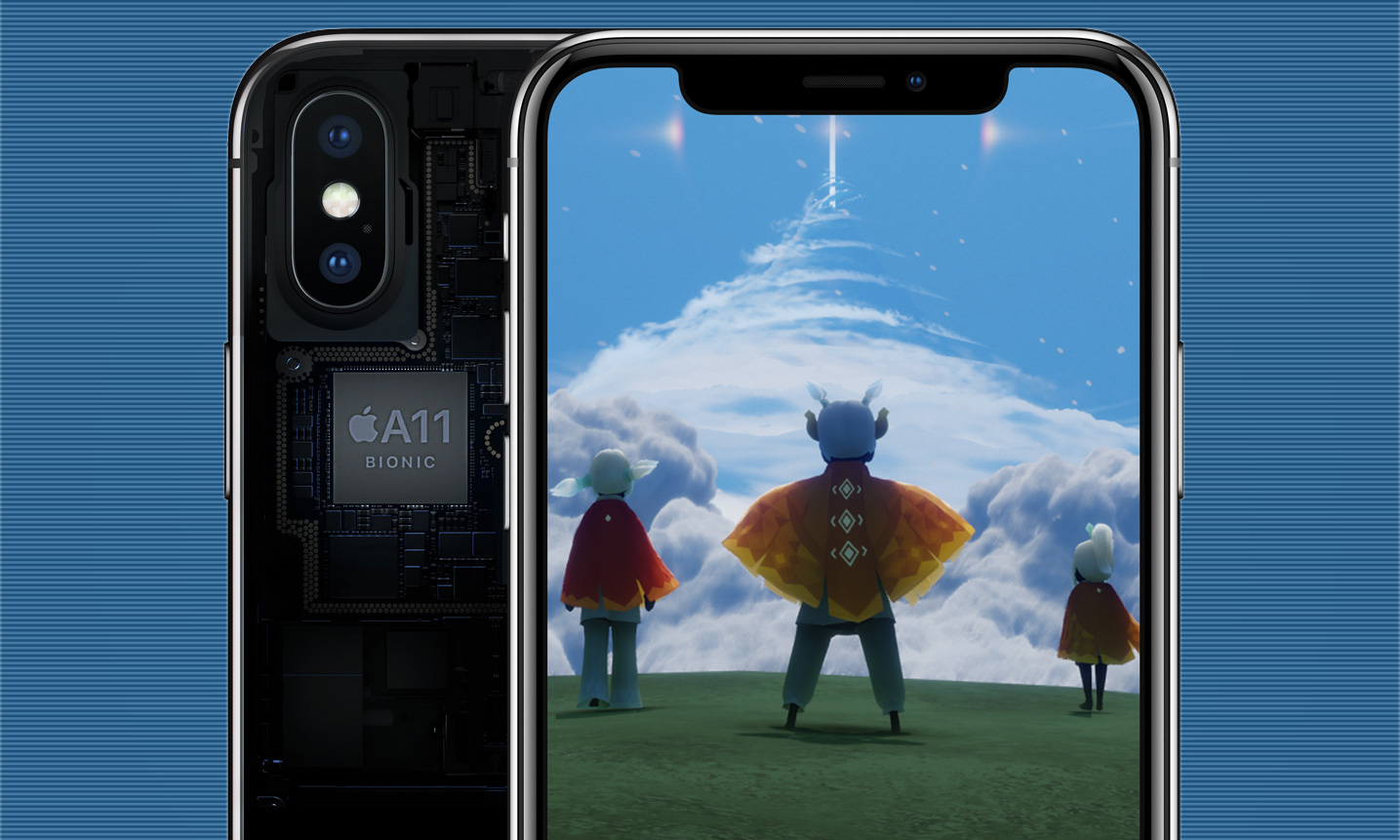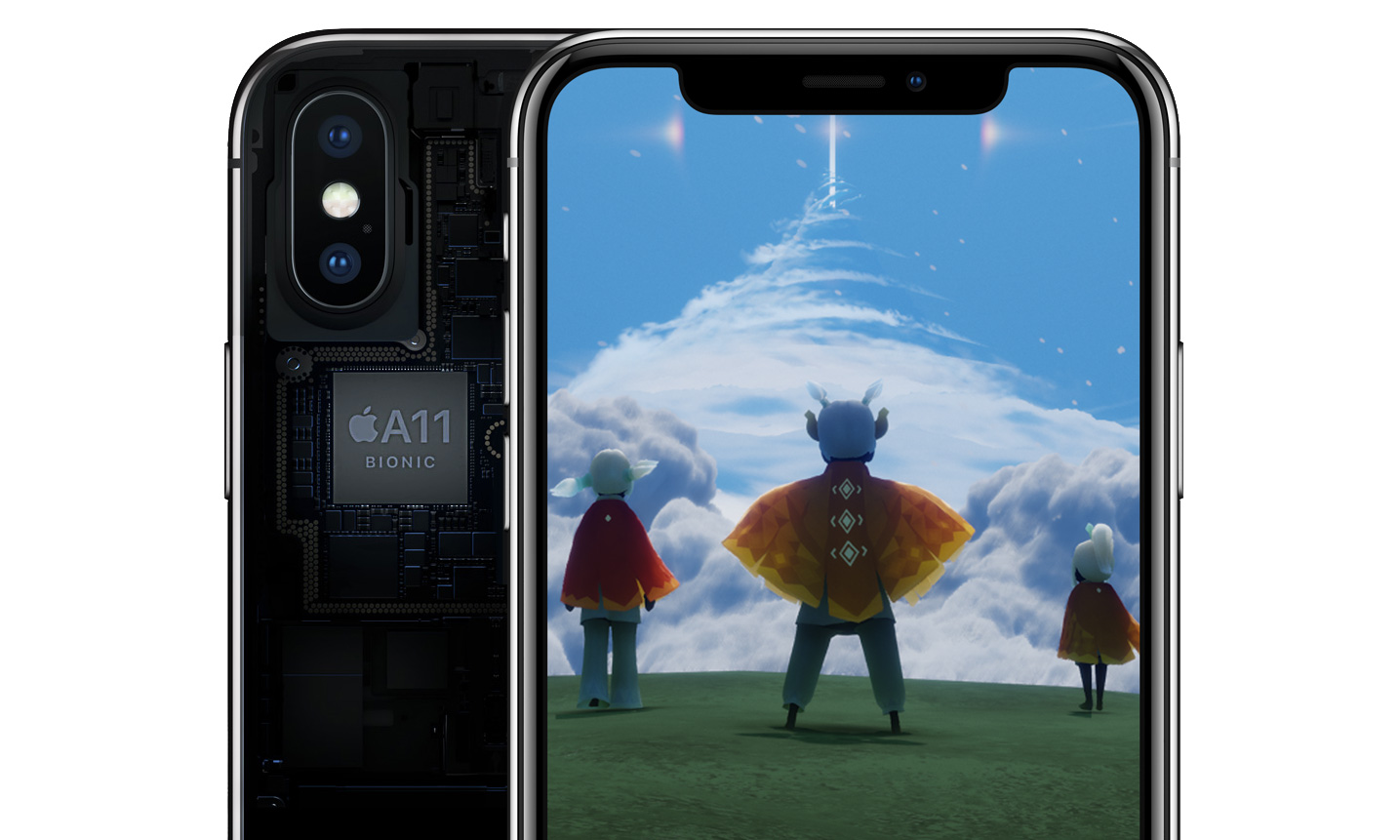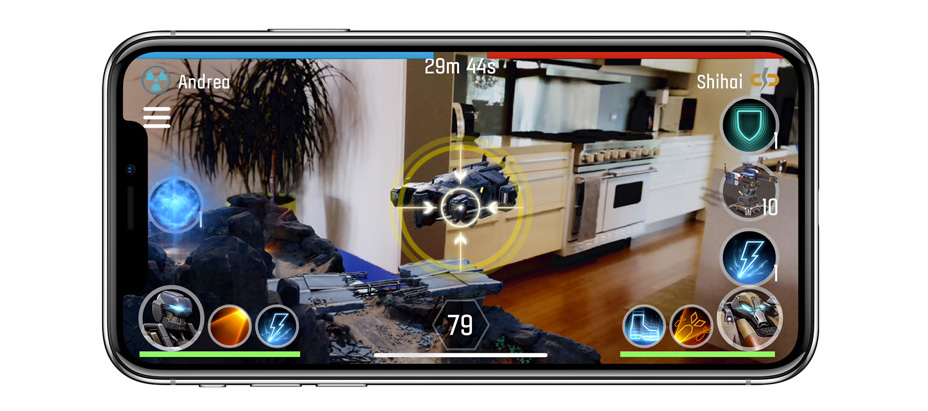Geekbench Chief: Android Stagnates While iPhone Soars
The founder of Primate Labs is sounding off on the performance gap between the iPhone 8 and Android flagships, and what it means for mobile computing.

The go-to performance benchmark for phones is Primate Labs’ Geekbench 4, and the iPhone 8’s new A11 Bionic chip has produced scores that are so high compared to flagships like the Samsung Galaxy Note 8 that it’s causing the benchmark company’s founder to question what’s going on with Android.
"The thing that I don't fully understand is why performance has seemed to stagnate on the Android side," said John Poole, founder of Primate Labs. "Where you don't see these big leaps forward. I don't understand what's happening there."

On the multicore portion of the Geekbench 4 test, the iPhone 8’s A11 Bionic processor scored 10,170. The fastest Android phone we’ve tested, the Note 8, hit 6,564. That’s 54 percent slower. The iPhone 8 also blew away the Android competition on the 3DMark graphics test and on our own 4K video-editing test.
MORE: iPhone 8 Is World's Fastest Phone (It's Not Even Close)
Today's top-tier Android phones use Qualcomm's Snapdragon 835 processor. We reached out to Qualcomm to comment about the performance gap between its chip and Apple's A11 Bionic, and we will update this story when we hear back.
So is the A11’s performance advantage overkill? Not when you consider how we’re now starting to use phones — and what’s coming next.
"At this point, you've got desktop-class performance in a handset. There's no way of looking at it any other way," said Poole. I wouldn't have thought to use my first-generation iPhone to edit video. I would've thought you were crazy."
But how will phones leverage this additional horsepower? Poole points to virtual reality, augmented reality and machine learning.
Older iPhones running an A9 chip can handle AR apps created with Apple’s ARKit, but the iPhone 8, iPhone 8 Plus and iPhone X have been optimized for AR via the A11 Bionic processor, as well as the cameras, gyroscope and accelerometer.

If you look at the Geekbench 4 numbers, the iPhone 8 is technically faster than the 13-inch MacBook Pro with a 7th-gen Intel Core i5 processor, but is that really the case? Yes and no.
"Everybody looks at the A11 scores and they go, ‘Holy crap, this is . . . what does this mean? Are these even comparable?’ said Poole. "Well, yes, they're comparable, but at the same time, you're not going to use your phone to render a huge video because, simply, the form factor doesn't lend itself to it."
Poole is referring to the difference between burst performance and sustained performance. Laptops can keep up their speeds for a longer period of time because they have active cooling. With an iPhone or other smartphone, the processor will eventually generate more heat than the case can dissipate.
But that doesn’t diminish what Apple has accomplished with the A11 Bionic chip. Whether it’s for 5 minutes or 10 minutes, the performance gap between iOS and Android has suddenly widened. And when you’re paying $700 to $1,000 for a new phone, you want something that feels future proof.
"I think there are all sorts of other cool things that we're going to be able to do on our phones down the road that we can't even necessarily comprehend right now," Poole said.
Sign up to get the BEST of Tom's Guide direct to your inbox.
Get instant access to breaking news, the hottest reviews, great deals and helpful tips.
Mark Spoonauer is the global editor in chief of Tom's Guide and has covered technology for over 20 years. In addition to overseeing the direction of Tom's Guide, Mark specializes in covering all things mobile, having reviewed dozens of smartphones and other gadgets. He has spoken at key industry events and appears regularly on TV to discuss the latest trends, including Cheddar, Fox Business and other outlets. Mark was previously editor in chief of Laptop Mag, and his work has appeared in Wired, Popular Science and Inc. Follow him on Twitter at @mspoonauer.
-
rogo.jack17 Okay everybody has figured out how to manipulate the performance test on these graphics sites and also by writing inline diss or aol or iOS programs to create a fault score on the index. what makes you think that somebody couldn't write a program insert it into the iOS that manipulates the score has anybody looked into that. okay I've had an iPhone 8 and an lgv30 side-by-side with processing the same graphics and processing the same screens as far as loading and unloading the blocks and they're pretty much exactly the same the iPhone beat it on loading the graphics that 3D rotation and things like that the v30 beat the Apple so not really sure where you're getting your information but it could be skewed I physically held them in my hand and done that have you?Reply -
Mark Spoonauer Your point is taken on synthetic benchmarks but not only have we hold the phones in our hands we've compared their performance in real-world tests. This includes video editing, opening large files and opening larger apps. The iPhone 8 came out on top in each case.Reply
https://www.tomsguide.com/us/iphone-8-benchmarks-fastest-phone,review-4676.html
20212059 said:Okay everybody has figured out how to manipulate the performance test on these graphics sites and also by writing inline diss or aol or iOS programs to create a fault score on the index. what makes you think that somebody couldn't write a program insert it into the iOS that manipulates the score has anybody looked into that. okay I've had an iPhone 8 and an lgv30 side-by-side with processing the same graphics and processing the same screens as far as loading and unloading the blocks and they're pretty much exactly the same the iPhone beat it on loading the graphics that 3D rotation and things like that the v30 beat the Apple so not really sure where you're getting your information but it could be skewed I physically held them in my hand and done that have you?
-
adamcawthorn Has anyone considered that the operating systems are different and if you swapped the chips over to handle each other's OS that things may be different? Just a thought. I don't know enough to know if this could be a factor.Reply -
Mark Spoonauer Interesting thought. Apple has long touted that it has an advantage because it controls both the hardware and software and how they're integrated. Google buying HTC could help Android,Reply
at least with Pixel phones.20212130 said:Has anyone considered that the operating systems are different and if you swapped the chips over to handle each other's OS that things may be different? Just a thought. I don't know enough to know if this could be a factor.
-
Phil_29 Mark, I have to disagree with you. First of all android may always lag behind because its sold to the various vendors and they change it as needed. Its not in house so to speak. The key word there is "may." So your taking a google designed operating system, modified by Samsung to their needs and for their processor. Along the way some "optimization is changed. Its inevitable.Reply
My girlfriend has an 8 and I have the note 8. They are neck and neck in everything.
The other thing to consider is this.. for your average user that does NOT do video editing, or opens super huge files.. will not likely notice any difference between the two handsets.
There are things that so called power users to..like test against video editing.. I have never met anyone who does video editing on a phone.
Of all the people I know, text, facebook, pictures, games, internet, open apps and check email. SO why not compare things that people actually do on a daily basis.
So lets compare things people actually DO on their phones. Its like saying a corvette will blow away a honda accord on internate 95. Ok because the speed limit on interstate 95 is what, 55-65?
How many people drive a corvette? Not many. Honda accord, a shit load. If you want to do a fair comparison between cards, take a car that people drive and use daily like a nissan vs a honda.
How many people do video editing? not many. How many people use the internet, text and open small aps.. a lot..
And do keep in mind that optimization on apples part probably does have an edge because its in house. -
Mark Spoonauer Thanks. Video editing is only one application. The Note 8 also fell behind on opening a large file, something a lot of people would do as an attachment, and in opening a game (though less dramatic). But as noted, it's also about what's coming next. AR apps in particular take up a lot of resources.Reply
We will be following up with other everyday tasks as well.
20212183 said:Mark, I have to disagree with you. First of all android may always lag behind because its sold to the various vendors and they change it as needed. Its not in house so to speak. The key word there is "may." So your taking a google designed operating system, modified by Samsung to their needs and for their processor. Along the way some "optimization is changed. Its inevitable.
My girlfriend has an 8 and I have the note 8. They are neck and neck in everything.
The other thing to consider is this.. for your average user that does NOT do video editing, or opens super huge files.. will not likely notice any difference between the two handsets.
There are things that so called power users to..like test against video editing.. I have never met anyone who does video editing on a phone.
Of all the people I know, text, facebook, pictures, games, internet, open apps and check email. SO why not compare things that people actually do on a daily basis.
So lets compare things people actually DO on their phones. Its like saying a corvette will blow away a honda accord on internate 95. Ok because the speed limit on interstate 95 is what, 55-65?
How many people drive a corvette? Not many. Honda accord, a shit load. If you want to do a fair comparison between cards, take a car that people drive and use daily like a nissan vs a honda.
How many people do video editing? not many. How many people use the internet, text and open small aps.. a lot..
And do keep in mind that optimization on apples part probably does have an edge because its in house.
-
Phil_29 ok so here's a question. If apple is so superior, why does android hold most of the market share?Reply
If you are going to talk about speed, the bionic may be a bit faster than the samsung, however, feature wise, the note 8 blows the i phones out of the water.
for example, wireless charging, ive had for a while and NOW apple is coming out with it?
They may be a bit faster in processing, that I highly doubt your average user will notice, but where are they when it comes to things samsung has already had in the market?
Is the bionic the only thing that apple offers that may be a bit faster? if apple was superior, and I do like apple stuff, honestly, they would dominate the market place and they simply are not.
Great article, although it reminds me of things that I read being a pc power user that claim that the geforce a gives you 5 fps more than the geforce b.. because the human eye can only notice so much and 5 fps is not noticeable to your average person.. -
Mark Spoonauer Of course and thank you. We need to devise more real-world performance tests to help shoppers decide what's best for them. And Qualcomm has a new chip on the horizon...Reply20212205 said:and by the way, no disrespect meant, just a friendly debate :)
-
TommyLeeBDW Don't know why people are still buying a android phone that cost $800 at launch and resale is worth only $200 two years later plus it is slower and have lower quality camera compare to an iphone at the same time of launch. I have many top of the line android phone and I always go back to iphone everytime due to lack of performance, resale and camera.Reply

